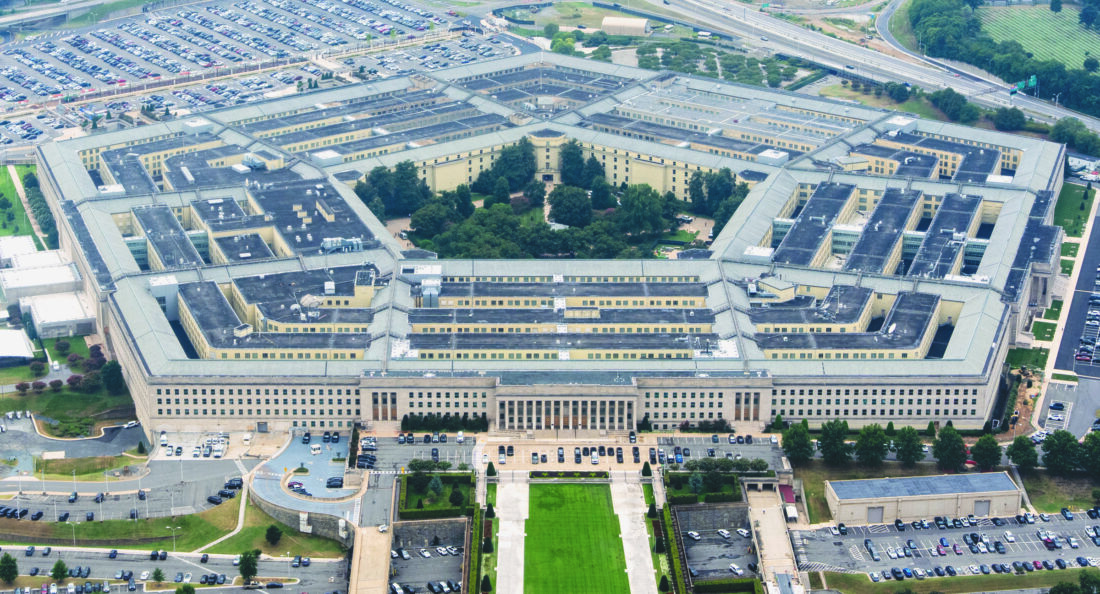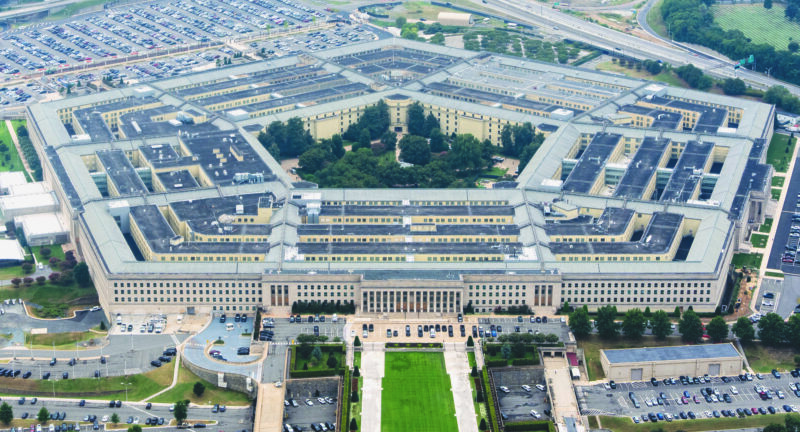House GOP: Pentagon funds research that has aided China military

The Pentagon, the headquarters for the U.S. Department of Defense, is seen from the air on Aug. 20 in Arlington, Va. (AP photo)
WASHINGTON — Over a recent two-year period, the Pentagon funded hundreds of projects done in collaboration with universities in China and institutes linked to that nation’s defense industry, including many blacklisted by the U.S. government for working with the Chinese military, a congressional investigation has found.
The report, released Friday by House Republicans on the Select Committee on the Chinese Communist Party, argues the projects have allowed China to exploit U.S. research partnerships for military gains while the two countries are locked in a tech and arms rivalry.
“American taxpayer dollars should be used to defend the nation — not strengthen its foremost strategic competitor,” Republicans wrote in the report.
“Failing to safeguard American research from hostile foreign exploitation will continue to erode U.S. technological dominance and place our national defense capabilities at risk,” it said.
The Pentagon and didn’t immediately respond to an Associated Press request for comment.
The congressional report said some officials at the Defense Department argued research should remain open as long as it is “neither controlled nor classified.”
The report makes several recommendations to scale back U.S. research collaboration with China. It also backs new legislation proposed by the committee’s chairman, Rep. John Moolenaar, R-Michigan. The bill would prohibit any Defense Department funding from going to projects done in collaboration with researchers affiliated with Chinese entities that the U.S. government identifies as safety risks.
The Chinese Embassy on Friday called the report “groundless.” “We oppose it,” the embassy said.
Beijing has in the past said science and technological cooperation between the two countries is mutually beneficial and helps them cope with global challenges.
Military applications
The 80-page report builds on the committee’s findings last year that partnerships between U.S. and Chinese universities over the past decade allowed hundreds of millions of dollars in federal funding to help Beijing develop critical technology. Amid pressure from Republicans, several U.S. universities have ended their joint programs with Chinese schools in recent years.
The new report focuses more narrowly on the Defense Department and its billions of dollars in annual research funding.
The committee’s investigation identified 1,400 research papers published between June 2023 and June 2025 that acknowledged support from the Pentagon and were done in collaboration with Chinese partners. The publications were funded by some 700 defense grants worth more than $2.5 billion. Of the 1,400 publications, more than half involved organizations affiliated with China’s defense research and industrial base.
Dozens of those organizations were flagged for potential security concerns on U.S. government lists, though federal law does not prohibit research collaborations with them. The Defense Department money supported research in fields including hypersonic technology, semiconductors, artificial intelligence, advanced materials and next-generation propulsion.
Calls to scale back
The report takes issue with Defense Department policies that do not explicitly forbid research partnerships with foreign institutions that appear on U.S. government blacklists.
It makes more than a dozen recommendations, including a prohibition on any Pentagon research collaboration with entities that are on U.S. blacklists or “known to be part of China’s defense research and industrial base.”
Moolenaar’s legislation includes a similar provision and proposes a ban on Defense Department funding for U.S. universities that operate joint institutes with Chinese universities.
A senior Education Department official said the report “highlights the vulnerability of federally funded research to foreign infiltration on America’s campuses.” Under Secretary of Education Nicholas Kent said the findings reinforce the need for more transparency around U.S. universities’ international ties, along with a “whole-of-government approach to safeguard against the malign influence of hostile foreign actors.”




